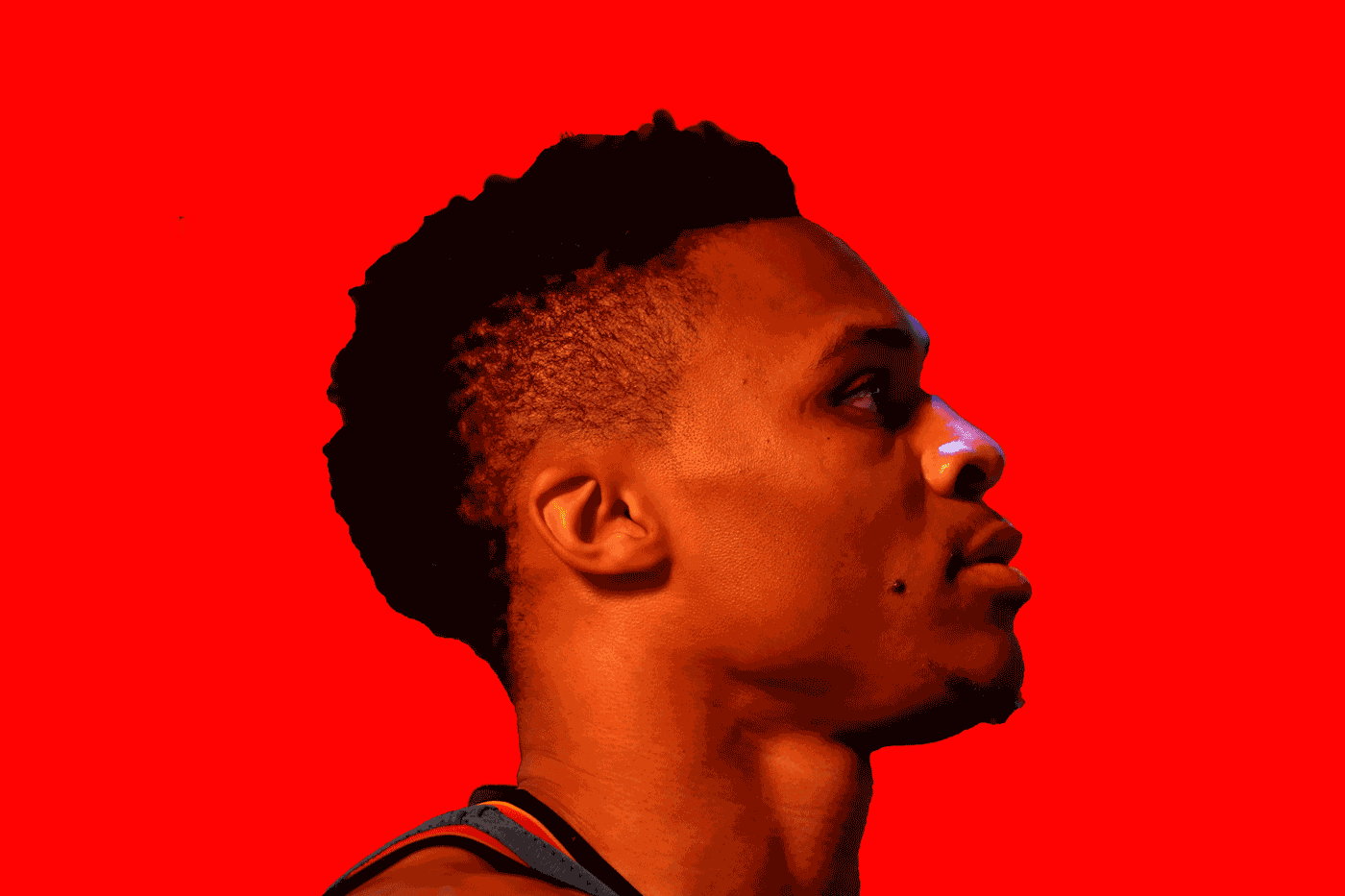Bleacher Report’s Howard Beck reported this week that multiple GMs foresee a Russell Westbrook trade before the upcoming season begins, with Boston as the most obvious destination. With respect to every Celtics fan with a shit-eating grin on their face Wednesday, the news here wasn’t Boston’s candidacy in the race. The Celtics will (and should) be linked to every available star until 2019, when their Brooklyn–draft pick candy rain subsides. The revelation here is, wow, Russell Westbrook might actually play for another team next season.
Maybe that isn’t much of a revelation for you. Maybe this was clear the second Kevin Durant chose the Bay Area for a new start. But how much thought have you put into that reality? “Russell Westbrook is a force of nature,” Sam Presti said at a July 4 press conference following Durant’s announcement. “He is a true leader in the sense that he takes it on. He takes it on, and I think he’ll take this on, as well.” Presti, in essence, said nothing, but our collective inability to articulate Westbrook’s influence is precisely how to best explain what he does.
What does it mean for a team to acquire a player like Westbrook, whose most useful stylistic comparison isn’t with another basketball player, but with the literal sun because of the way he generates magnetism? With Westbrook, a team isn’t just getting a system unto himself, it’s getting a dominant, self-sustaining source of energy. We don’t question our sun because we wouldn’t be alive without it.
Oklahoma City had held its two stars with kids gloves for the last eight seasons, allowing their brilliance to shine untamed. Durant’s reported grievances over the team’s stagnation and lack of offensive fluidity seem less a shot at Westbrook (there were plenty of touches to go around between the two, and they largely made the most of them) and more about what the organization allowed to become the natural order of things. Durant and Westbrook taking turns as the hero was the game plan, but it also reflected how the Thunder understood themselves, across the reigns of both Scott Brooks and Billy Donovan.
Before the 2015–16 season, Durant explained his relationship to Westbrook in a metaphor: “Different animal, same beast,” he said. “Russell is one of those guys who will come into your house and take all your stuff, but turn all your lights on and let you know he’s taking it. I’m one of those guys that will come in while you sleep and take all your stuff and just leave. We get the same things accomplished but in different ways.”
It remains true today, even as they’ve gone separate ways. Durant and Westbrook are two of the very best players in the league, but dropping Durant into a new ecosystem isn’t like dropping in Westbrook. So, what could we even expect from a partnership between Westbrook and boy wonder Brad Stevens? Or the Lakers? Or any other team? What made Durant and Westbrook so compelling together was their magnetic pull and push. What happens when Russ doesn’t have one of the top three players in the world by his side? We can joke about his usage rate and shot volume, but can Westbrook truly be Westbrook without a player on the level of KD?
By the end of the pair’s run, Westbrook had taken over as the dominant cultural force on the Thunder; his play was no longer looked at as an impediment to Durant’s success, because Oklahoma City could no longer survive without Westbrook’s shot creation. Pairing him with Al Horford in Boston doesn’t inspire the kind of tense interplay that may have been the key to the Thunder’s success; the Celtics would be subsumed within Westbrook’s cult of personality, for better or for worse. That would go double for any other team willing to sell the farm for his services.
Imagining Westbrook on another team isn’t difficult because we’ve grown attached to the particular jersey colorway he’s repped his entire career. It’s difficult because it’s taking a unique feature of a landscape and overlaying it somewhere completely unaccustomed to the potential effects. It’s like trying to imagine an avalanche in a landlocked desert.
“Obviously, our relationship probably won’t ever be the same again,” Durant said of Westbrook this week in an interview on Sina, China’s most prominent online media company. Like a young Minnesotan moving away from the bitter windchills of winter, or a Kansan stepping out of Tornado Alley, Durant’s departure means Westbrook, who once was a signal post of home, becomes just another terrible fact of life. Westbrook, of all the available stars in the league, offers the most singular talents for any team hoping to become instant contenders. But featuring Westbrook is unlike featuring any other player in the league. Wherever he ends up next season, I wonder if any of us are ready.


